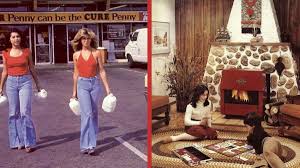Getting personal in the New Year
- Mitch Hampton

- Jan 1, 2021
- 7 min read

This post is the one in which I get ever more personal than I am usually wont to do.
In another sense it is entirely new, in keeping with a New Year, as the visual metaphor might be not the clock, but the calendar.

I have always been intensely interested in the question of periodization, for at least a couple of reasons.
Firstly, some of the works of art I hold in the highest esteem are from other eras than the current one. Many are from the 20th century rather than the 19th or 16th, so one would be forgiven for thinking my assertion utterly insignificant.
I am not in any way a classicist, or medievalist as many contemporary people are, so it might be seen that the objects of my love are recent and relatively inaccessible.
Yet I would argue that the greatest resistance in society is to that which is most recent and within living memory rather than that which is centuries old.
Because my love for these artworks is so very deep and constant, immune to new sensibilities and fashions, it is quite hard for me to reckon with the fact that these same artworks are dismissed and criticized, partly for reasons having to do with the moral or political convictions held by contemporary people that these artworks are felt to violate or not keep pace with what is considered to be progress.
I leave totally to one side the question if a society truly makes progress in a linear fashion or not. I have written elsewhere and in other contexts of the problem of presentism that I shall need to consider here.
But I must make clear at the outset that this "presentism" is an inevitable problem.
Or rather, a problem we can only hope to manage rather than "solve."
Presentism is not something to be completely overcome or extinguished if for the simple fact the all of us are forced to live in the present and are creatures of our time.
Because of this living present tense there is no such thing as a living human being without some kind of bias towards the present - even if that person is consumed by thoughts of their younger days, they nevertheless must eat food and sleep today.
Even if they profess allegiance to some known past (though, interestingly, rarely known experientially by the one doing the professing!) this can never be fully realized.
However much nostalgic types might tell themselves that they long for some earlier time, I suspect that this isn't the whole truth. I want to say that there is no past time to which I would ever want to return without reservations and hesitations with the possible exception of the 1970s, but I was in existence then in any event.
The list of sins of any past eras of which I can think is too real and too long for me ever to want that time machine without a return destination. Indeed the greatest villains on the world stage today are precisely those whose aim is to send all of us literally back to the 1950s!
No thank you.
The artworks of those eras, however, seems to me a different story: the best part of the humans of those eras. (The art is doubtless far superior to the behavior of a lot of those artists in their lives, to be sure. A part of me suspects that if we knew a little less about the lives of their creators we might be able to appreciate more the work).
But I do feel we should fight against presentism when it destroys our ability to appreciate or even comprehend past artworks.
This, though hard, can and should be done.
The second reason for my interest in periodization is that I have watched many styles or genres of art that I happen to love wax and then wane, now to be embraced as indispensable, now to be reviled as anachronistic.
Think of teen sex comedies.
Also I think one of the virtues of our current moment - and there are not many; just witness that cursed and orphaned 2020 we all just left and which, in a word, sucked - is this ability to aesthetically appreciate past eras simultaneously and in the present.
A woman can look at a pencil skirt worn by a character in MadMen and be curious about what it would have been like to wear that and be seen in it and wear a copy for herself today.

We can wonder what theatre actors in the early part of the 20th century had to do with their voice on the stage before developments in electronics. And we can remember those styles we embraced in an earlier period only to discard just as fervently later on, as some of us feel about bell bottoms, M C Hammer styled slacks, or of those undersized, skimpy 2000-'17 suits which I rejected during their long reign even as most men embraced these too.
In short, there is a truth to periodization and thus the calendar year. Yes it is doubtless an artificial convention and construction. But it is no less "real" for that.
Many artificial inventions are quite real, some matters of life and death.
If you think about the 1980s, or the early 00s, you would have to be perversely obtuse to deny that there were shared aesthetics. And as I remarked in my discussion with Danielle Ariel Norris , there is always a dominant or privileged style in a given age.
What has always interested me is what was good or valuable in the styles that are rejected or suppressed in favor of the single, dominant one.
This too is a question of periodization, of one calendar year eclipsing another.
I said I would get personal. But to do so did require the foregoing material.
Well here it goes.
Depending on what programs are aired in this new year you may have the opportunity to hear a discussion with one Stephanie Persephone , who, among many other things, including art of various kinds, is what I guess you could consider an activist for the autistic.
In April of 2017 I took it upon myself to get psychologically tested at Harvard Medical School at the age of 49.

Two things were noteworthy about this test - the length, which was about two full days' worth of mental tasks, and tests and exertions and the second was the extraordinary beauty of the woman who administered these, to me like some other worldly combination of Bianca Jagger , Jacqueline Bissett and Cindy Crawford.
I really can't find any parallels among known public figures.
Now at the end of this long, admittedly arduous thing I received the most comprehensive diagnosis you could ever receive: it is like a snapshot of the soul, really.
(I do think if everyone were "required" to take this test we could, I don't know, eliminate a lot of crime, reduce the divorce rate and the suicide rate etc.)

I was also many other things. I was extremely gifted verbally and in writing, and severely challenged in visual processing.
I was at once very gifted and very slow.
A direct quote from the doctor's notes reads as follows:
"There was a significant difference between his superior verbal abilities, and his borderline visuospatial abilities.
Mr. Hampton can have difficulty understanding and processing his visual environment. He may have trouble seeing the forest for the trees.It may also extend into his social functioning, since so much of interpersonal functioning is based on non-verbal information."
Then there is this passage which sticks out to me in the context of an otherwise non no-nonsense, clinical document:
"Ironically, he does not always feel comfortable talking about or processing emotions, especially negative ones, though he clearly is an emotional man, which is a wonderful asset."

Now keeping in mind that I received all of this dense news about my own person not at age 3 or age 13 but a few months away from the age of fifty, you can see how I see an intimate connection between our relationships with artworks of the past and the present tense.
Like books and movies which are set in final editions and final cuts, all of the material of my life was fixed. I dated this girl and not some other.
I went to New England Conservatory of Music and not Miami University School of Music or Oberlin.
I lived in Boston for thirty years and not Tampa, Florida.
These are what we could call facts and they have a certain solidity,
Yet I was invited to completely reimagine the meaning of everything I had ever experienced, felt, and done.
This invitation, in the form of, in my view, a fairly accurate analysis of my character, through these elaborate tests and questionnaires, was an opportunity to, in a corny word, grow.

I continue to regard this as both curse and blessing; the good and bad to me are very close on the balance sheet.
If it is heartbreaking to me, in that I can see all the other possibilities of my life unfold had I had a different kind of brain, and how the kind of brain I did have elicited all of these incredibly specific results, results which had always been a largely a mystery until the age of fifty.

But it also beautiful in that it forms something like an epic novel or miniseries.
I don't say this is all of me, and I would be the first to speak against the fixity or sufficiency of any identity, however free or independent the choice may be.
And so it is with the passage from one year to the next.

Others, not me, will have a lot to say about this, about resolutions and what we must do or not do.
In a sense they are like me with this psychological diagnosis.
The tools, the languages might be quite different but the raw material, as always, is the often homely and quotidian stuff of our daily lives, without which there would be nothing to discuss any further.


For more information about Autism, Aspergers , what t means to be on the spectrum and the links to creativity for connection, check out some of the links below:
Here is Simon Cohen (YES related to the great actor - did you SACHA Cohen) :
https://www.theguardian.com/society/2019/oct/02/simon-baron-cohen-autism-neurodiversity-brains-money
Here is the Scottish Government's PSA on Autism and Aspergers:
















Comments